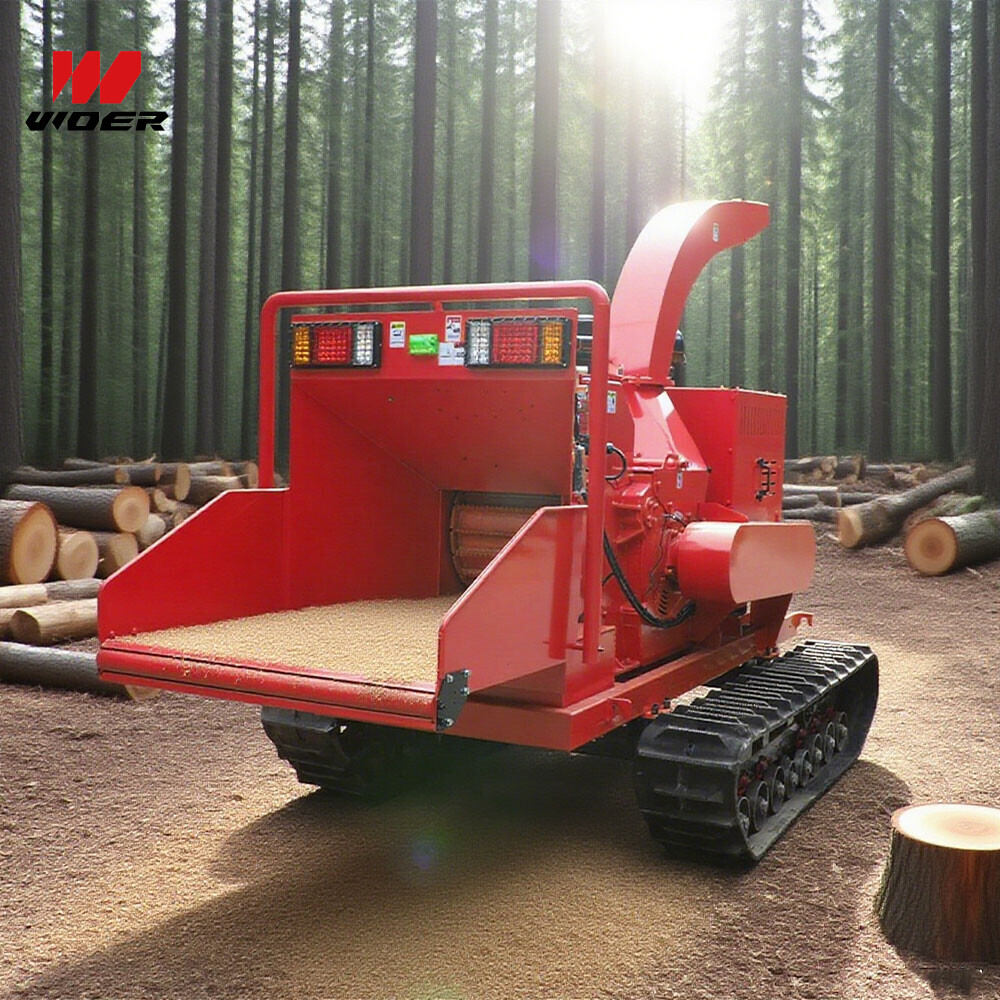Navigation
Contact us
Phone
Message

Why Choose a Self Feed Wood Chipper for Your Forestry Needs?
In the forestry and wood processing industry, efficiency and productivity are paramount. A self-feed wood chipper stands out as a critical piece of equipment, offering automated feeding, reduced labor costs, and enhanced safety. Whether you're processing logs, branches, or other woody debris, understanding the advantages of a self-feed wood chipper can help you make an informed decision for your operations.
What is a Self-Feed Wood Chipper?
A self-feed wood chipper is a specialized machine designed to automatically pull in and process wood materials without constant manual intervention. Unlike traditional chippers that require operators to push materials into the feed mechanism, self-feed models use hydraulic or mechanical systems to draw in logs and branches, significantly improving workflow efficiency.
Key Benefits of Self-Feed Wood Chippers
- Increased Productivity: Automated feeding allows continuous operation, reducing downtime and boosting output.
- Labor Savings: Minimizes the need for manual feeding, cutting labor costs by up to 50%.
- Enhanced Safety: Reduces operator exposure to moving parts and flying debris.
- Versatility: Handles a wide range of materials, from small branches to large logs.
- Consistent Chip Quality: Uniform feeding ensures consistent chip size and quality.
Technical Specifications to Consider
When evaluating a self-feed wood chipper, consider these critical technical aspects:
Industry Applications
Self-feed wood chippers serve multiple sectors within the forestry industry:
- Commercial Logging: Processing slash and smaller diameter trees at landing sites.
- Municipal Operations: Clearing right-of-way vegetation and storm debris.
- Biomass Production: Creating uniform chips for energy production.
- Land Clearing: Managing vegetation during site preparation.
- Arboriculture: Processing tree trimmings and removals.
Comparing Self-Feed vs. Traditional Chippers
Understanding the differences between self-feed and traditional wood chippers helps in making the right equipment choice:
- Feed Mechanism: Self-feed models automate material intake, while traditional chippers require manual pushing.
- Operator Requirements: Self-feed chippers need fewer operators for the same volume of work.
- Throughput: Self-feed models typically process 20-40% more material per hour.
- Safety: Automated feeding keeps operators further from dangerous moving parts.
- Cost: Self-feed chippers have higher initial costs but lower lifetime operating expenses.
Maintenance and Longevity
Proper maintenance extends the life of your Industrial Electric Diesel Wood Cutting Bandsaw Horizontal Sawmill and self-feed wood chipper. Follow these best practices:
- Daily inspection of knives and anvils
- Regular lubrication of all moving parts
- Hydraulic system checks every 250 hours
- Annual professional servicing
- Proper storage during off-seasons
Cost Analysis and ROI
While self-feed wood chippers represent a significant investment, their return on investment becomes clear when examining:
- Reduced labor costs over 5 years
- Increased production capacity
- Lower insurance premiums due to improved safety
- Higher resale value compared to manual-feed models
- Potential tax benefits through equipment depreciation
Future Trends in Wood Chipping Technology
The wood chipping industry continues to evolve with several emerging trends:
- Hybrid power systems combining diesel and electric
- Advanced automation with sensor-based feeding
- Improved dust suppression systems
- Telematics for remote monitoring
- Lightweight composite materials for increased mobility
Why Choose Our Wood Chipping Solutions?
Our Industrial Electric Diesel Wood Cutting Bandsaw Horizontal Sawmill and wood chippers are engineered for performance and durability. We offer:
- Industry-leading warranties
- Comprehensive service networks
- Custom configuration options
- Financing programs
- Operator training packages
Contact our team today to discuss how our self-feed wood chippers can transform your forestry operations. Our experts will help you select the perfect model for your specific needs and budget.

This stunning beach house property is a true oasis, nestled in a serene coastal community with direct access to the beach.
Contact
West Street, Melbourne Victoria 3000 Australia